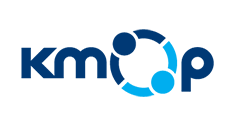AMELIE – enhAncing Mechanisms of idEntification, protection and muLti-agency collaboratIon through transnational and multi-sectoral actors’ Engagement
Supporting health care and frontline service providers to identify, safely refer and provide gender- and trauma-sensitive services to trafficked persons.
Project Number: 101038223/ AMIF-2020-AG
Funded by: AMIF Duration: 1/11/2021 – 31/10/2023

Challenge
Trafficking in human beings (THB) is a serious crime and a fundamental violation of human rights. Yet criminals continue to exploit people of all genders, ages and backgrounds in every region of the world.
According to the EU’s data, between 2017 and 2018, there were more than 14,000 registered trafficked persons within the European Union – and the actual number is likely to be significantly higher as many cases remain undetected. Sexually exploited women and girls make up the majority of trafficked persons in the EU, according to the European Commission (EC, Communication on the EU Strategy on Combatting Trafficking in Human Beings, 2021-2025).
The violence that trafficked persons experience has severe consequences on victims’ physical and psychological health, therefore also affecting the health systems. Despite the impact of the forms of exploitation, to date, there has been limited engagement by the global health community in the dialogue or responses to trafficking, with the health needs of victims receiving insufficient attention.
Innovation
AMELIE is an AMIF (Asylum, Migration and Integration Fund) programme that aims to increase the capacity of health care and frontline service providers to identify, safely refer and provide gender- and trauma-sensitive services to trafficked persons – with a focus on adult women – in Belgium, Greece, Germany and Italy.
Action
Outputs
📄 Tips for Health Professionals (GR)

European Commission’s support for the production of this content does not constitute an endorsement of the contents, which reflect the views only of the authors, and the Commission cannot be held responsible for any use which may be made of the information contained therein.
Project Partners





